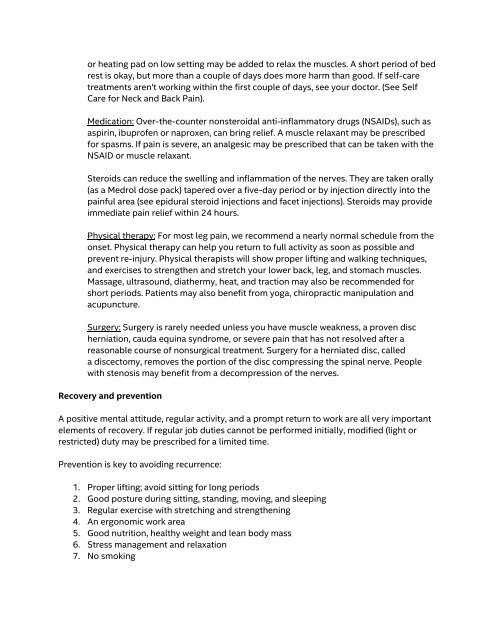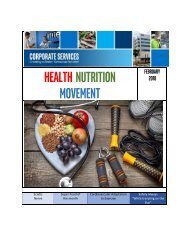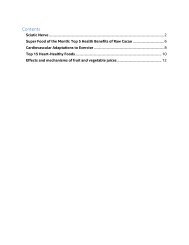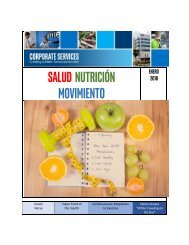You also want an ePaper? Increase the reach of your titles
YUMPU automatically turns print PDFs into web optimized ePapers that Google loves.
or heating pad on low setting may be added to relax the muscles. A short period of bed<br />
rest is okay, but more than a couple of days does more harm than good. If self-care<br />
treatments aren't working within the first couple of days, see your doctor. (See Self<br />
Care <strong>for</strong> Neck and Back Pain).<br />
Medication: Over-the-counter nonsteroidal anti-inflammatory drugs (NSAIDs), such as<br />
aspirin, ibuprofen or naproxen, can bring relief. A muscle relaxant may be prescribed<br />
<strong>for</strong> spasms. If pain is severe, an analgesic may be prescribed that can be taken with the<br />
NSAID or muscle relaxant.<br />
Steroids can reduce the swelling and inflammation of the nerves. They are taken orally<br />
(as a Medrol dose pack) tapered over a five-day period or by injection directly into the<br />
painful area (see epidural steroid injections and facet injections). Steroids may provide<br />
immediate pain relief within 24 hours.<br />
Physical therapy: For most leg pain, we recommend a nearly normal schedule from the<br />
onset. Physical therapy can help you return to full activity as soon as possible and<br />
prevent re-injury. Physical therapists will show proper lifting and walking techniques,<br />
and exercises to strengthen and stretch your lower back, leg, and stomach muscles.<br />
Massage, ultrasound, diathermy, heat, and traction may also be recommended <strong>for</strong><br />
short periods. Patients may also benefit from yoga, chiropractic manipulation and<br />
acupuncture.<br />
Surgery: Surgery is rarely needed unless you have muscle weakness, a proven disc<br />
herniation, cauda equina syndrome, or severe pain that has not resolved after a<br />
reasonable course of nonsurgical treatment. Surgery <strong>for</strong> a herniated disc, called<br />
a discectomy, removes the portion of the disc compressing the spinal nerve. People<br />
with stenosis may benefit from a decompression of the nerves.<br />
Recovery and prevention<br />
A positive mental attitude, regular activity, and a prompt return to work are all very important<br />
elements of recovery. If regular job duties cannot be per<strong>for</strong>med initially, modified (light or<br />
restricted) duty may be prescribed <strong>for</strong> a limited time.<br />
Prevention is key to avoiding recurrence:<br />
1. Proper lifting; avoid sitting <strong>for</strong> long periods<br />
2. Good posture during sitting, standing, moving, and sleeping<br />
3. Regular exercise with stretching and strengthening<br />
4. An ergonomic work area<br />
5. Good nutrition, healthy weight and lean body mass<br />
6. Stress management and relaxation<br />
7. No smoking







